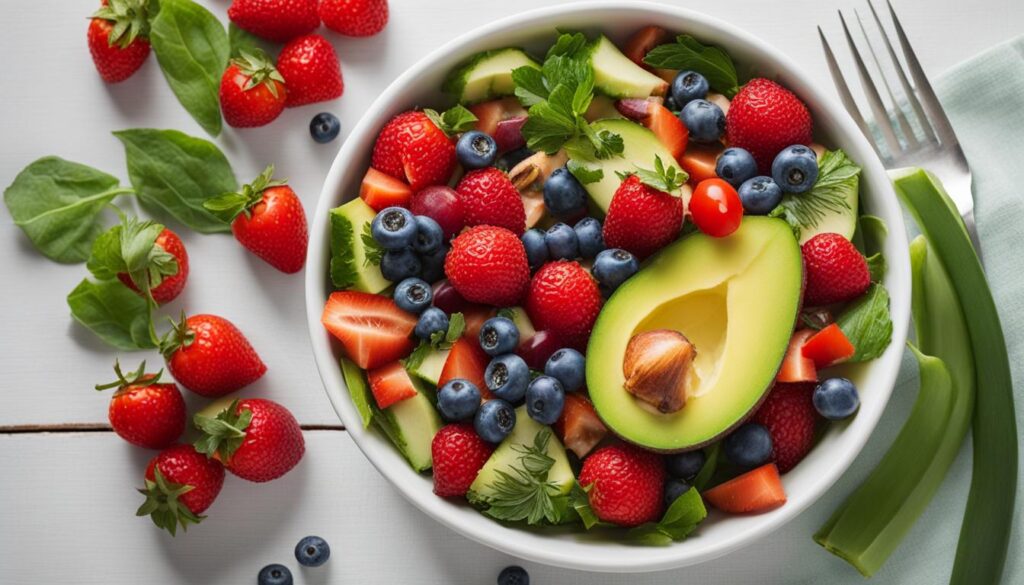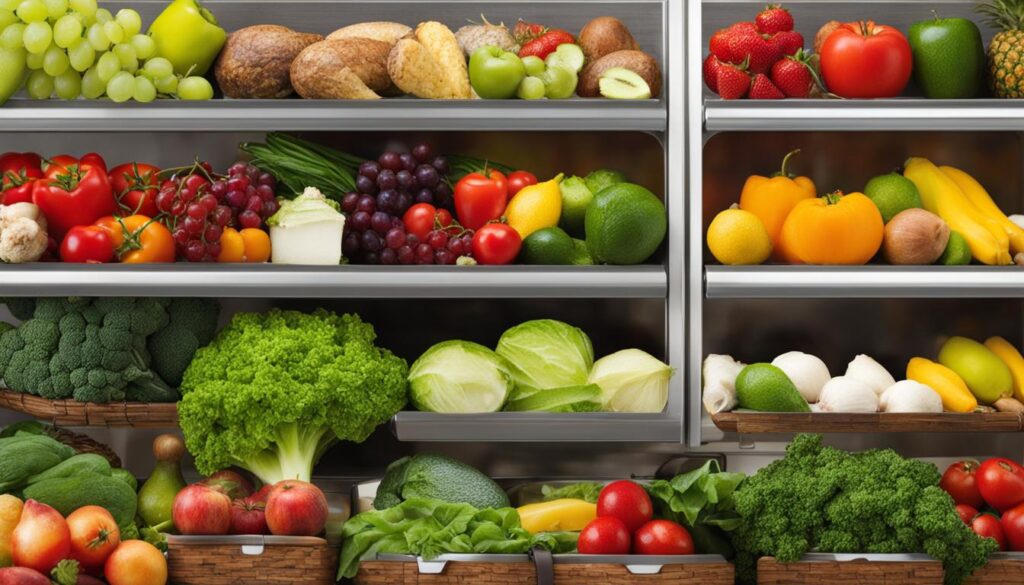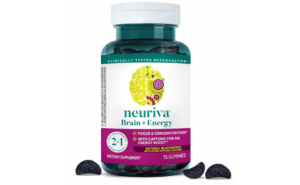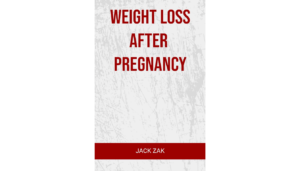Welcome to our article on the best weight loss diet plans for your health journey! Losing weight can be a challenging task, but finding the right diet plan can make all the difference. With so many options available, it can be overwhelming to choose the right one for you. That’s why we’ve done the research and compiled a list of the top weight loss diet plans to help you achieve your goals.
Whether you’re looking to shed a few pounds or embark on a significant weight loss journey, a well-designed weight loss diet plan can help you achieve your desired results. In this article, we’ll explore the most effective and popular weight loss diet plans available, so you can find the one that’s right for you.
So, let’s dive in and discover the best weight loss diet plan for your health journey!
Mayo Clinic Diet: A Comprehensive Approach to Weight Loss
If you’re looking for a sustainable weight loss meal plan, the Mayo Clinic Diet is a great option to consider. Developed by experts at one of the most respected medical institutions in the world, this diet emphasizes healthy eating habits and regular exercise to achieve and maintain a healthy weight.
The Mayo Clinic Diet is designed to help you lose weight in a safe and healthy way while building new habits that will help you maintain your weight loss. This diet isn’t just about losing weight quickly; it’s about developing a sustainable lifestyle that supports your long-term health and wellness goals.
The Basics of the Mayo Clinic Diet
The Mayo Clinic Diet is divided into two phases: “Lose It!” and “Live It!” The first phase is designed to jump-start your weight loss by introducing healthy habits and breaking unhealthy ones. During this phase, you’ll focus on consuming nutrient-dense foods, reducing your added sugar intake, and increasing your physical activity.
The second phase is all about maintaining your new healthy habits and continuing to lose weight if needed. During this phase, you’ll learn how to make healthy choices when eating out, how to enjoy your favorite foods in moderation, and how to maintain your weight loss over time.
The Benefits of the Mayo Clinic Diet
One of the biggest benefits of the Mayo Clinic Diet is that it emphasizes sustainable weight loss. Instead of focusing on restrictive eating habits or fad diets, this diet offers a balanced approach to weight loss that you can maintain over the long term.
The Mayo Clinic Diet also emphasizes the importance of regular exercise, which is crucial for maintaining a healthy weight and preventing chronic diseases. By incorporating physical activity into your daily routine, you’ll not only burn calories but also improve your overall health and wellness.
Sample Meal Plan for the Mayo Clinic Diet
| Meal | Food |
|---|---|
| Breakfast | 1 cup cooked oatmeal with 1/2 cup sliced strawberries and 1 tablespoon chopped walnuts |
| Lunch | Grilled chicken salad with 2 cups mixed greens, 1/2 cup cherry tomatoes, 1/4 cup sliced cucumber, 1/4 avocado, and 2 tablespoons vinaigrette dressing |
| Dinner | 4 ounces grilled salmon with 1 cup roasted asparagus and 1/2 cup quinoa |
| Snack | 1 small apple with 1 tablespoon almond butter |
Remember, this meal plan is just an example, and the Mayo Clinic Diet is flexible enough to be customized to your individual needs and preferences. Consult with a healthcare professional before starting any new diet or exercise program.
Overall, the Mayo Clinic Diet is an excellent option for those looking for a sustainable and healthy weight loss meal plan that emphasizes balanced eating habits and regular exercise. If you’re ready to make a positive change in your life and achieve a healthy weight, consider giving the Mayo Clinic Diet a try.
The Mediterranean Diet: A Delicious and Nutritious Eating Plan
The Mediterranean Diet is a popular and healthy eating plan that can also aid in weight loss and weight maintenance. This diet is based on the traditional eating habits of people living in countries bordering the Mediterranean Sea and emphasizes the consumption of whole, nutrient-dense foods.
The Mediterranean Diet is rich in fruits, vegetables, whole grains, legumes, nuts, seeds, and healthy fats, such as olive oil. It includes moderate amounts of fish, poultry, dairy, and eggs, while limiting red meat and sugary foods and beverages.
| Food Category | Recommended Servings per Day |
|---|---|
| Vegetables | At least 3 servings |
| Fruits | At least 2 servings |
| Whole grains | At least 3 servings |
| Legumes | At least 3 servings |
| Nuts and seeds | At least 1 serving |
| Fish and seafood | 2-3 servings per week |
| Poultry, eggs, cheese, and yogurt | Moderate amounts |
| Red meat and sweets | Occasional servings |
The Mediterranean Diet is a well-balanced and healthy eating plan that can promote weight loss and weight maintenance. It emphasizes the importance of consuming a variety of nutrient-dense foods while limiting processed and sugary foods. Additionally, this diet promotes a healthy lifestyle that includes regular physical activity and stress management.
Incorporating the principles of the Mediterranean Diet into your eating plan can lead to numerous health benefits, such as a reduced risk of chronic diseases, improved brain function, and a longer lifespan.
Embrace the delicious and nutritious flavors of the Mediterranean Diet for weight loss and overall health improvement!
The Plant-Based Diet: A Plant-Powered Approach to Weight Loss
The Plant-Based Diet, including variations such as the vegan and vegetarian diets, is becoming increasingly popular as an effective way to promote weight loss and improve overall health. By focusing on whole plant foods and minimizing or eliminating animal products, this diet offers a balanced approach to achieving a healthy weight.
Effective at Promoting Weight Loss
Studies have shown that a plant-based diet can be effective in promoting weight loss. In fact, a review of 12 randomized controlled trials found that those who followed a vegetarian diet lost an average of 4.5 pounds more than those who followed a non-vegetarian diet over an average of 18 weeks.
Weight Loss and May…
Not only can a plant-based diet aid in weight loss, but it may also help improve other health markers. For example, research suggests that a vegetarian diet may help lower blood sugar levels and reduce the risk of developing type 2 diabetes. Additionally, a vegan diet may improve heart health and reduce the risk of certain cancers.
Sample Menu
| Meal | Example |
|---|---|
| Breakfast | Bowl of oatmeal with mixed berries and almond milk |
| Lunch | Quinoa and black bean salad with avocado and salsa |
| Dinner | Roasted sweet potato and chickpea curry with brown rice |
| Snack | Apple slices with almond butter |
Customizing the Plan
The plant-based diet offers a great deal of flexibility and can be customized to fit individual preferences, making it a sustainable and effective way to achieve weight loss goals. Whether you prefer to follow a strict vegan or vegetarian diet or incorporate occasional meat and dairy products, the key is to focus on consuming primarily whole plant foods.
The DASH Diet: A Proven Way to Lose Weight and Lower Blood Pressure
The DASH Diet, short for Dietary Approaches to Stop Hypertension, is not only effective in lowering blood pressure but is also an effective eating plan to support weight loss. This diet aims to reduce salt and sodium consumption while promoting nutrient-rich foods such as fruits, vegetables, and whole grains.
The DASH Diet emphasizes weight loss through a combination of a healthy eating plan and regular physical activity. It encourages individuals to consume foods rich in potassium, calcium, and magnesium as they help lower blood pressure while promoting a healthy weight.
According to the American Heart Association, the DASH Diet has been shown to reduce blood pressure, lower the risk of heart disease, and improve overall health.
The Basics of the DASH Diet
Here is an overview of the key principles of the DASH Diet:
- Limit sodium intake to no more than 2,300 mg per day (or 1,500 mg per day if you have high blood pressure)
- Eat plenty of fruits and vegetables (aim for 4-5 servings per day of each)
- Consume whole grains instead of refined grains
- Include low-fat dairy products in your diet (aim for 2-3 servings per day)
- Choose lean proteins such as chicken, fish, and legumes
- Avoid sugary drinks and foods high in saturated and trans fats
- Engage in regular physical activity for at least 30 minutes per day
The Benefits of the DASH Diet
The DASH Diet not only helps lower blood pressure but also supports weight loss and overall health. Some of the key benefits of this eating plan include:
- Reduced risk of heart disease and stroke
- Improved insulin sensitivity and reduced risk of type 2 diabetes
- Healthy weight loss
- Lowered cholesterol levels
- Reduced inflammation in the body
By following the DASH Diet, you can promote a healthy lifestyle and achieve your weight loss goals while improving overall health. Consult with your healthcare provider before making any significant changes to your diet or exercise routine.

The Flexitarian Diet: A Flexible Approach to Weight Loss
The Flexitarian Diet is an eating plan that allows for occasional meat consumption while primarily focusing on plant-based foods. This flexible approach to weight loss emphasizes the importance of a balanced diet and regular physical activity.
Diet and exercise are both essential for effective weight loss, and the Flexitarian Diet allows you to customize the plan according to your preferences and lifestyle. By incorporating more plant-based foods into your diet, you can increase your nutrient intake and improve overall health.
Customizing the Plan
One of the benefits of the Flexitarian Diet is its flexibility. You don’t have to completely eliminate meat from your diet, but rather focus on incorporating more plant-based foods into your meals. This approach allows you to customize the plan according to your individual needs and dietary preferences.
Some ways to customize the plan include:
- Incorporating more fruits and vegetables into your diet
- Choosing whole grain products over refined grains
- Experimenting with different sources of protein, such as legumes, tofu, and tempeh
Diet and Exercise
While diet plays a significant role in weight loss, exercise is also essential for maintaining a healthy lifestyle. The Flexitarian Diet promotes the importance of regular physical activity and encourages individuals to find ways to incorporate exercise into their daily routine.
Some ways to incorporate exercise into your routine include:
- Taking a daily walk or jog
- Joining a fitness class or gym
- Trying at-home workout videos or apps
Image related to the Flexitarian Diet
The Volumetrics Diet: Feeling Full with Fewer Calories
The Volumetrics Diet is a weight loss plan that focuses on consuming foods that are low in energy density. This means that you can eat a larger portion of food while consuming fewer calories, leading to weight loss and helping you maintain a healthy weight in the long run.
This eating plan emphasizes whole, nutrient-dense foods such as fruits, vegetables, whole grains, lean proteins, and low-fat dairy products. By prioritizing these types of foods, the Volumetrics Diet can aid weight loss without leaving you feeling hungry or deprived.
One of the key principles of the Volumetrics Diet is to focus on foods that have high water content, such as soups, stews, and salads. These foods can help you feel full and satisfied while consuming fewer calories overall.
To illustrate the principles of the Volumetrics Diet, take a look at the following table:
| Food | Energy Density |
|---|---|
| Broccoli (1 cup) | 0.3 |
| Brown Rice (1 cup) | 1.2 |
| Cheddar Cheese (1 oz) | 4.5 |
| Dark Chocolate (1 oz) | 5.6 |
As you can see, broccoli has a very low energy density, meaning you can eat a larger portion of it while consuming fewer calories. On the other hand, cheddar cheese and dark chocolate have higher energy densities, meaning you would have to eat a smaller portion to consume the same number of calories.
The Volumetrics Diet can lead to significant weight loss while still allowing you to eat satisfying, nutrient-dense foods. If you’re looking for a sustainable approach to weight loss and weight maintenance, the Volumetrics Diet may be worth considering.
The Mind Diet: Feeding Your Brain and Body for Weight Loss
The Mind Diet is a hybrid of the Mediterranean and DASH diets, both of which are known for their health benefits. The goal of the Mind Diet is to support brain health and reduce the risk of cognitive decline while also promoting healthy weight loss.
The Mind Diet focuses on consuming nutrient-dense foods such as fruits, vegetables, whole grains, lean proteins, and healthy fats. These foods are rich in vitamins, minerals, and antioxidants that support brain function and overall health.
In addition to promoting brain health and weight loss, the Mind Diet may also lower the risk of conditions such as Alzheimer’s disease and Parkinson’s disease.
Mind Diet Focuses on Nutrient-Dense Foods
The Mind Diet emphasizes consuming foods that are high in nutrients and low in saturated fats, added sugars, and sodium. This means that the diet is mostly plant-based and includes a variety of fruits, vegetables, whole grains, legumes, nuts, and seeds.
Lean proteins such as fish and poultry are also included in moderation. Red meat, butter, and processed foods are limited or avoided altogether.
The Mind Diet also emphasizes healthy fats such as those found in olive oil, nuts, and avocados. These fats have been linked to improved brain function and can help promote feelings of fullness and satiety.
Health Benefits and Weight Loss
The Mind Diet offers numerous health benefits, such as reducing inflammation and oxidative stress, improving blood pressure and cholesterol levels, and supporting heart health. It has also been shown to promote healthy weight loss.
A study published in the Journal of Alzheimer’s Disease found that following the Mind Diet was associated with a reduced risk of cognitive decline and Alzheimer’s disease. Another study published in the Journal of the Academy of Nutrition and Dietetics found that following the Mind Diet was associated with a lower risk of overweight or obesity.
Healthy Weight Loss
The Mind Diet is an effective approach to healthy weight loss because it emphasizes consuming nutrient-dense foods that promote feelings of fullness and satiety. By focusing on these foods, you can reduce your calorie intake while still feeling satisfied.
The Mind Diet also encourages regular physical activity, which is essential for maintaining a healthy weight and overall health. By combining a healthy eating plan with regular exercise, you can achieve your weight loss goals in a safe and sustainable way.
The Ornish Diet: A Comprehensive Approach to Weight Management
The Ornish Diet is a holistic lifestyle program that promotes weight management through a combination of low-fat, plant-based eating, regular exercise, stress reduction, and social support.
Recent studies indicate that this diet may be effective in promoting weight loss and maintaining long-term success. In fact, one study showed that participants lost an average of 4.5 pounds in the first month and continued to lose an average of 1.5 pounds per month over the following year.
The Ornish Diet focuses on consuming nutrient-dense foods such as fruits, vegetables, whole grains, legumes, and soy products while minimizing or eliminating high-fat and processed foods. This approach to eating supports weight management and overall health.
The Four Components of the Ornish Diet
The Ornish Diet consists of four key components:
| Component | Description |
|---|---|
| Nutrition | Eating a mostly vegetarian, high-carbohydrate, low-fat diet that includes whole grains, fruits, vegetables, legumes, and soy products. |
| Exercise | Engaging in moderate exercise for at least 30 minutes a day, five days a week, such as walking, jogging, or cycling. |
| Stress Management | Practicing stress-reducing techniques such as yoga, meditation, or deep breathing exercises. |
| Group Support | Participating in a supportive group environment to encourage adherence to the program and provide emotional support. |
The Ornish Diet can be customized to meet individual preferences and dietary restrictions. This flexibility, combined with the comprehensive approach to weight management, makes it a sustainable and effective way to lose weight and maintain a healthy lifestyle.
If you are considering the Ornish Diet, it is important to consult with a healthcare professional and registered dietitian to ensure it is safe and appropriate for your individual needs.

The Low-Carb Diet: A High-Protein Approach to Weight Loss
The low-carb diet, including popular variations such as the keto diet, restricts carbohydrate intake while increasing protein and fat consumption. This approach aims to switch the body into a state of ketosis, leading to weight loss and potential health benefits.
Many studies have shown that a low-carb diet can aid in weight loss by introducing a calorie deficit, reducing appetite, and increasing metabolism. This diet is associated with improvements in blood sugar levels, cholesterol, and blood pressure, making it a potential option for those with type 2 diabetes or other metabolic disorders.
The Keto Diet
The ketogenic (keto) diet is a popular variation of the low-carb diet that emphasizes high-fat intake to achieve ketosis. This diet typically restricts carbohydrate intake to less than 50 grams per day, with a focus on consuming healthy fats such as avocado, nuts, and olive oil.
The keto diet has been associated with significant weight loss and improvements in markers of metabolic health. However, it can be challenging to maintain and may lead to nutrient deficiencies if not approached carefully.
A Sample Low-Carb Meal Plan
Here’s a sample meal plan for a day on a low-carb diet:
| Meal | Food |
|---|---|
| Breakfast | Scrambled eggs with spinach and feta cheese |
| Snack | Celery sticks with almond butter |
| Lunch | Grilled chicken breast with roasted vegetables |
| Snack | Greek yogurt with berries |
| Dinner | Baked salmon with asparagus |
As with any diet, it’s important to customize the plan to fit your individual needs and preferences. Consult with a healthcare professional before embarking on a new diet and listen to your body as you make changes to your eating habits.
Discovering the right diet plan can be a significant factor in achieving your weight loss goals. The low-carb diet, including variations such as the keto diet, can provide an effective approach to weight loss and improved health markers. However, it’s essential to approach any dietary change with care and consideration for your individual needs and preferences.
Weight Watchers: A Well-Known Program for Successful Weight Loss
If you’re looking for a new diet to help you lose weight safely, Weight Watchers may be the program for you. With its emphasis on healthy eating and physical activity, Weight Watchers has been a go-to for successful weight loss for decades.
The program offers an individualized approach to weight loss that takes into account your unique needs and preferences. By assigning a points value to every food and drink, Weight Watchers makes it easy to stay on track while still enjoying the foods you love. Plus, with a supportive community and regular meetings, you’ll have the encouragement and accountability you need to stick to your goals.
Weight Watchers has been proven to be effective for weight loss, with a 2015 study showing that participants lost an average of 8.6 pounds in the first four weeks of the program. And because it focuses on gradual, sustainable weight loss, you’ll be more likely to keep the weight off in the long run.
| Pros | Cons |
|---|---|
| Individualized approach to weight loss | Requires a subscription fee |
| Flexible, allowing for indulgences | Requires tracking of points for all foods and drinks |
| Emphasis on healthy eating and physical activity | May not be suitable for those with certain dietary restrictions |
Overall, Weight Watchers is a well-known program with a track record of success. If you’re looking for a safe and effective way to lose weight, it’s worth considering.
Creating a Healthy Weight Loss Meal Plan
Planning your meals is an essential part of any successful weight loss journey. It can help you stay on track with your health goals and ensure you are getting the nutrients your body needs to thrive. Here are some tips for creating a healthy weight loss meal plan.
Plan Meals in Advance
One of the best ways to stay on track with your diet is to plan your meals in advance. Whether you plan a week or a month in advance, having a set schedule for your meals can help you avoid impulse eating and make healthier choices.
Consider creating a 7-day meal plan that includes a variety of nutrient-dense foods such as fruits, vegetables, lean proteins, and healthy fats. Be sure to customize the plan to fit your dietary preferences and lifestyle.
Include a Variety of Foods
Eating a variety of foods ensures that you are getting all the nutrients your body needs to function properly. Incorporate a mix of fruits, vegetables, whole grains, lean proteins, and healthy fats into your meals.
Try to avoid processed foods and limit your consumption of added sugars and saturated fats. Instead, opt for whole, nutrient-dense foods that will keep you feeling full and satisfied.
Track Your Macros
Tracking your macros, or macronutrients, can help you ensure that you are getting the right balance of carbohydrates, protein, and fat in your diet. There are many online resources and apps that can help you track your macros and stay on track with your diet goals.
Plan for Snacks
Snacks can be a helpful addition to your meal plan, especially if you tend to feel hungry between meals. Consider incorporating healthy snacks such as fruits, nuts, and vegetables into your plan. Be sure to track your snack intake to ensure that you are staying within your daily calorie goals.
Customize the Plan to Your Needs
Remember that everyone’s dietary needs and preferences are different. Be sure to customize your meal plan to fit your individual needs and lifestyle. If you have any dietary restrictions or health concerns, consult with a healthcare professional before starting any new diet plan.
The Role of Diet and Exercise in Weight Loss
When it comes to achieving weight loss goals, diet and exercise are both essential components of a successful plan. While diet focuses on the food you consume, exercise helps burn calories and build muscle, leading to increased metabolism and improved overall health.
Diet and exercise work together to promote weight loss by introducing a calorie deficit, which means consuming fewer calories than you burn. This can be achieved by reducing calorie intake through a healthy diet and increasing energy expenditure through regular physical activity.
Studies have shown that a combination of diet and exercise is effective at promoting weight loss, especially when compared to relying solely on one component. In fact, a study published in the International Journal of Obesity found that participants who combined diet and exercise lost significantly more weight than those who only focused on diet or exercise alone.
Additionally, regular exercise has been shown to have numerous health benefits beyond weight loss, including improved cardiovascular health, reduced risk for type 2 diabetes, and increased energy levels.
When designing your weight loss plan, it’s important to focus on both diet and exercise for long-term success. Consider incorporating a variety of physical activities into your routine, such as walking, strength training, and yoga, to keep it engaging and enjoyable. Combine this with a healthy, balanced diet that includes plenty of fruits, vegetables, lean proteins, and whole grains.
Source: National Institute of Diabetes and Digestive and Kidney Diseases
Conclusion
Choosing the best weight loss diet plan can be challenging, but it’s essential to find one that fits your individual needs and preferences. Remember that sustainable weight loss is a journey, and finding the right diet plan can make all the difference.
Consider factors such as your lifestyle, dietary preferences, and health conditions when selecting a diet plan. The Mayo Clinic Diet, Mediterranean Diet, Plant-Based Diet, DASH Diet, Flexitarian Diet, Volumetrics Diet, Mind Diet, Ornish Diet, Low-Carb Diet, and Weight Watchers are some of the most popular and effective options to explore.
Creating a Healthy Meal Plan for Weight Loss
A healthy meal plan is essential to achieving weight loss goals. Consider planning meals in advance and customizing the plan to fit your preferences. Try incorporating a variety of foods, including fruits, vegetables, whole grains, lean proteins, and healthy fats.
Below is a sample 7-day meal plan to help you get started:
- Day 1
- Breakfast: Oatmeal with berries and almonds
- Lunch: Grilled chicken salad with mixed greens, veggies, and balsamic vinaigrette
- Dinner: Baked salmon with roasted veggies and quinoa
- Day 2
- Breakfast: Greek yogurt with honey and granola
- Lunch: Turkey avocado wrap with veggies and hummus
- Dinner: Beef stir-fry with brown rice and mixed vegetables
- Day 3
- Breakfast: Smoothie bowl with mixed berries, banana, and spinach
- Lunch: Tuna salad with mixed greens and veggies
- Dinner: Grilled shrimp with roasted veggies and sweet potato
- Day 4
- Breakfast: Scrambled eggs with veggies and whole wheat toast
- Lunch: Veggie wrap with avocado and hummus
- Dinner: Chicken fajitas with peppers, onions, and whole wheat tortillas
- Day 5
- Breakfast: Whole wheat pancakes with fruit and almond butter
- Lunch: Grilled chicken Caesar salad with whole wheat croutons
- Dinner: Baked fish with roasted veggies and brown rice
- Day 6
- Breakfast: Overnight oats with peanut butter and banana
- Lunch: Egg salad sandwich with veggies and whole wheat bread
- Dinner: Grilled chicken with sweet potato and mixed veggies
- Day 7
- Breakfast: Avocado toast with egg and veggies
- Lunch: Quinoa salad with mixed greens and veggies
- Dinner: Turkey chili with mixed veggies and brown rice
The Role of Diet and Exercise in Weight Loss
Both diet and exercise play crucial roles in achieving weight loss goals. Remember to balance your diet plan with physical activity and aim for regular exercise. Combining both diet and exercise can help you achieve your weight loss goals more effectively.
The Best Weight Loss Diet Plan for You
Ultimately, the best weight loss diet plan for you is the one that fits your lifestyle and preferences while offering a balanced approach to achieving your health goals. Consider consulting with a healthcare professional or registered dietitian to help you find the right plan for you.
FAQ
What is the best weight loss diet plan for me?
The best weight loss diet plan for you depends on your individual needs and preferences. It’s important to consider factors such as your lifestyle, dietary preferences, and any health conditions you may have. Consulting with a healthcare professional or registered dietitian can help you determine the most suitable diet plan for your health journey.
Is the Mayo Clinic Diet a sustainable way to lose weight?
Yes, the Mayo Clinic Diet is a comprehensive approach to weight loss that promotes healthy eating habits and regular exercise. With its focus on long-term, sustainable weight loss, this plan can help you achieve and maintain a healthy weight.
What are the health benefits of the Mediterranean Diet?
The Mediterranean Diet is not only effective for weight loss but also offers numerous other health benefits. This eating plan promotes heart-healthy foods such as fruits, vegetables, whole grains, lean proteins, and healthy fats. It has been associated with a reduced risk of heart disease, improved cognitive function, and lower rates of certain chronic diseases.
Can a plant-based diet help me lose weight?
Yes, a plant-based diet, whether vegan or vegetarian, can be effective in promoting weight loss. By focusing on whole plant foods and minimizing or eliminating animal products, this diet can help you achieve your weight loss goals while providing essential nutrients for overall health.
What is the DASH Diet and how does it support weight loss?
The DASH Diet, or Dietary Approaches to Stop Hypertension, is a well-researched eating plan that not only supports lowering blood pressure but also aids in weight loss. This diet emphasizes consuming nutrient-rich foods while reducing sodium intake, making it a beneficial option for those with hypertension or seeking weight loss.
Is the Flexitarian Diet customizable?
Yes, the Flexitarian Diet offers flexibility and allows for occasional meat consumption while primarily focusing on plant-based foods. This diet can be customized according to individual preferences and promotes the importance of regular physical activity for successful weight loss.
How does the Volumetrics Diet help with weight loss?
The Volumetrics Diet emphasizes consuming foods that are low in energy density, meaning they provide fewer calories for a larger portion size. By focusing on foods that are high in volume but low in calories, this diet can help you feel full and satisfied while promoting weight loss.
What are the health benefits of the Mind Diet?
The Mind Diet combines the principles of the Mediterranean and DASH diets to support brain health and weight loss. By emphasizing nutrient-dense foods, this diet can contribute to both physical and mental well-being, offering benefits beyond just weight loss.
How effective is the Ornish Diet for weight management?
The Ornish Diet is a comprehensive lifestyle program that focuses on low-fat, plant-based eating, regular exercise, stress reduction, and social support. This approach has been shown to be effective in promoting weight loss and maintaining long-term success in weight management.
Can a low-carb diet help with weight loss?
Yes, a low-carb diet, including variations such as the ketogenic (keto) diet, restricts carbohydrate intake while increasing protein and fat consumption. This approach aims to switch the body into a state of ketosis, leading to weight loss and potential health benefits.
How does the Weight Watchers program work?
The Weight Watchers program, now known as WW, combines healthy eating, physical activity, and support for successful weight loss. It offers a personalized approach to help individuals lose weight safely and develop sustainable habits.
How can I create a healthy weight loss meal plan?
Building a healthy weight loss meal plan is essential for achieving your goals. It involves planning meals effectively, considering your nutritional needs, and ensuring a balanced intake of proteins, carbohydrates, and fats. You can customize the plan to include your preferred foods and flavors while keeping portion sizes in check. Check out our sample 7-day meal plan for inspiration.
What is the role of diet and exercise in weight loss?
Both diet and exercise play crucial roles in weight loss. While diet focuses on managing calorie intake and choosing nutrient-dense foods, exercise helps burn calories, build muscle, and improve overall fitness. Combining a healthy eating plan with regular physical activity is essential for successful weight loss.
What is the best weight loss diet plan for me?
The best weight loss diet plan is the one that suits your individual needs and preferences while offering a balanced approach to achieving your health goals. By considering factors such as your lifestyle, dietary preferences, and health conditions, you can find the diet plan that will help you lose weight and maintain a healthy lifestyle in the long run.



